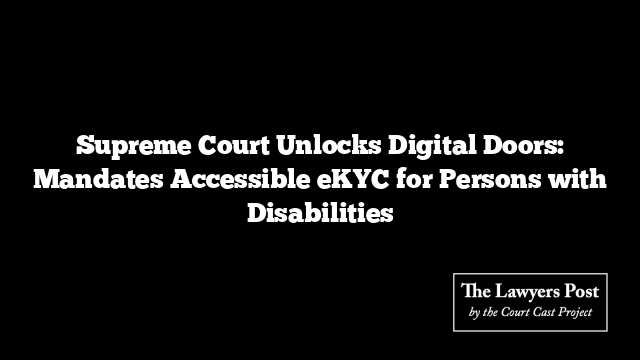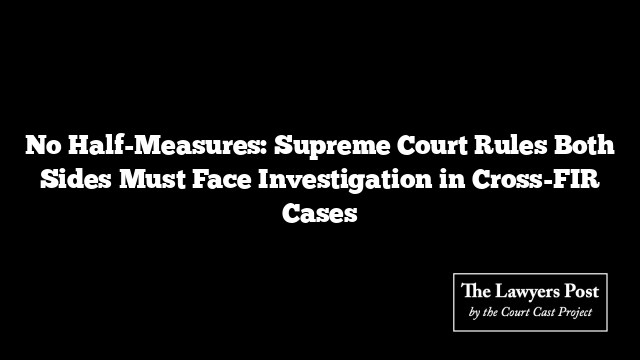In a powerful step towards a truly inclusive digital India, the Supreme Court has declared that access to digital services is no longer a privilege, but a fundamental right woven into the fabric of Article 21—the right to life and liberty.
Recognizing that acid attack survivors and persons with visual impairments often face insurmountable hurdles during mandatory eKYC (electronic Know Your Customer) procedures, the Court directed authorities to redesign these digital processes to ensure accessibility. The eKYC requirements, such as blinking on command, positioning one’s head within a frame, or signing documents on a touchscreen, have long locked out many from banking services and government benefits.
“The digital revolution must not build walls for the marginalized; it must lay down bridges,” observed the bench, helmed by Justices J.B. Pardiwala and R. Mahadevan. The Court made it crystal clear: digital inclusion isn’t charity—it’s a constitutional mandate.
Twenty directives have been issued to overhaul the existing eKYC norms, with a full judgment expected soon. These directives stem from the acknowledgment that acid attack survivors and individuals with blindness or low vision are fully protected under the Rights of Persons with Disabilities Act, 2016, and deserve more than the current systemic neglect.
The Court also took a broader view, stressing that in today’s world—where healthcare, finance, and civic services are all increasingly online—the meaning of “life and liberty” must evolve with technology. No citizen should be left behind in the name of innovation.
The ruling was the result of two hard-fought petitions. One, filed by Pragya Prasun, demanded inclusive alternatives for acid attack survivors navigating the treacherous digital KYC labyrinth. The other, led by Amar Jain, who is completely blind, highlighted how existing KYC formalities—from signing with a mouse to chasing fleeting OTPs—are not just inconvenient but fundamentally discriminatory.
Both petitions painted a grim but accurate picture: the digital India dream risks becoming a nightmare for those who cannot pass a selfie test or scribble signatures on command.
The Supreme Court has now set a precedent that could ripple through every corner of governance and commerce: accessibility is not an afterthought. It’s the starting point.
Final directions will be made public once the detailed judgment is uploaded.





